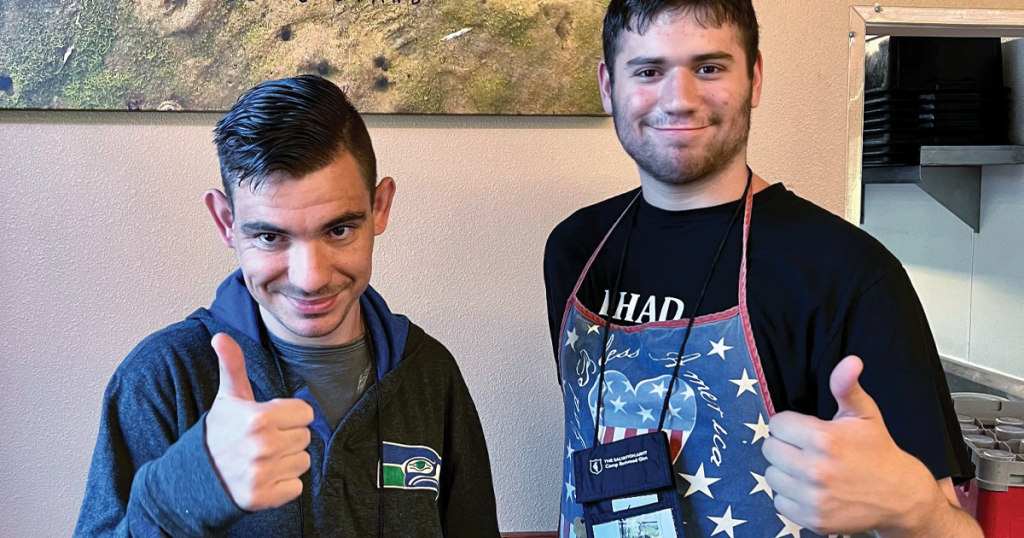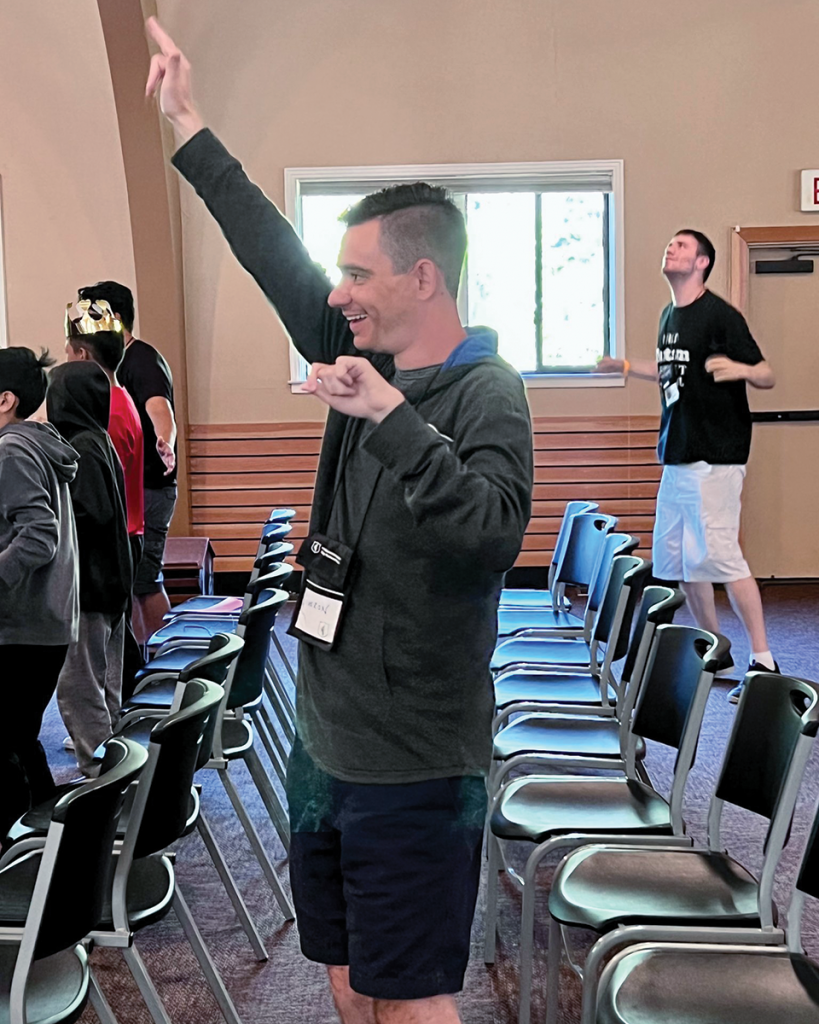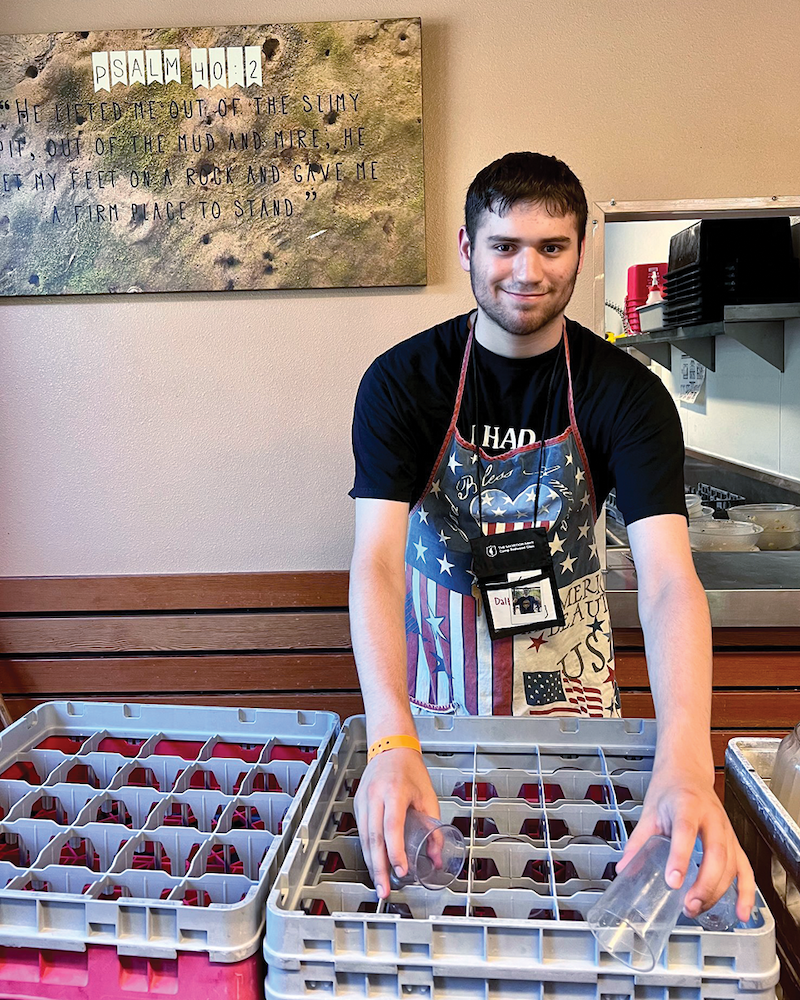The Salvation Army Makes Important Steps in Inclusion at Summer Camps
“The goal is to have it be as inclusive as possible.” – Captain Helms
Meeting needs without discrimination is a central focus of The Salvation Army’s ideology. As the needs of different groups of people continue to be recognized, the Army has continued to adapt to serve all people in the best possible way. Over the summer, The Salvation Army made great strides in making one of its most important ministries more accessible to people with disabilities. Redwood Glen Camp in southern California and High Peak Camp in Colorado both made accommodations this year to include disabled individuals in the summer camp experience, which has proven to be life-changing time and time again.
At Redwood Glen Camp, Cameron Helms, who is deaf, has cerebral palsy on one side of his body and has cognitive delays, and Dalton Low, who is on the autism spectrum, were hired on as summer camp staff. Both were lovingly embraced by the staff and the campers.

Cameron, whose mother Major Nancy Helms was recently appointed as Disabilities Ministries Director for the Western Territory, worked for two weeks operating the canteen, called “Cam’s Concessions,” early in the summer. He also served lunch to arriving campers on their first day. Major Helms stayed at camp for these two weeks as well, and taught a sign language class to the campers, assisted by Cameron. Together, Cameron and Major Helms led every dinner prayer in sign language. The campers loved signing to Cameron after learning, and Cameron’s face would light up in an indescribable way when they asked for snacks and thanked him in sign language, and included him in everyday life, according to Ed Covert, Camp Director at Redwood Glen. Unfortunately, Cameron was only able to spend those two weeks on camp staff before returning home, but everyone involved agrees that his experience was transformative for both Cameron and the campers who welcomed him.
Dalton Low, from the Bakersfield Corps in California, was also well received at Redwood Glen, where he worked with the kitchen staff. Once he had his routine and mental checklist, he managed the work well, says Covert. On registration days, he assisted with the paperwork process, which allowed him to greet campers as they got to camp, and he participated in the traditional weekly campfire skit where the operation staff introduce themselves. Dalton is also very musically talented and was on the praise team during chapel, playing guitar and singing. During the summer, Dalton would occasionally display the normal autistic behavior called “stimming,” which is an emotional response that can be different kinds of unusual and repetitive sounds or movements. Covert says that Dalton was so full of joy while working during mealtimes that stimming would occur, but it didn’t bother anyone. Kids still interacted with him normally and thanked him for his work. He was able to remain on staff for the duration of the summer.
Covert says he’s more than willing to hire people with disabilities again. Proper steps need to be taken to ensure that those staff members receive the support that they need, but he talks about teaching staff to accept and learn from those who “see, hear, and experience the world differently.” He also expressed that it’s important to him that disabled people who come to camp aren’t just there for the sake of saying they were there. He wants to be sure they have the opportunity to participate and contribute in a meaningful way and be who God created them to be.
Covert makes a point to talk about the importance of inclusion in the camp setting. “All of us carry some form of disability,” he said. “For some it’s more visible and obvious than others, but we all carry some level of disability.”

Cameron and Dalton were both also in attendance at High Peak Camp towards the end of the summer for The Salvation Army’s adaptive camp, designed specifically to include disabled people in all the activities an average camper enjoys. They joined other young adults with disabilities in High Peak’s programs and interacted with the teen camp that was happening at the same time. Dalton was also able to participate in the praise team at High Peak.
James Johnson, Camp Director at High Peak, has previous experience running adaptive camps at other locations. The trails around High Peak have been brought up to ADA standards, and additional gear such as adaptive harnesses for the challenge course have also been brought to camp. Johnson and DYS Captain Nick Helms, Cameron’s brother, both know that with a program like this, a mindset of adaptability is key. The campers will be allowed to do the activities that they enjoy for as long as they like with no problem. “The goal is to have it be as inclusive as possible,” says Captain Helms. “[It] runs concurrently with our teen camp, so we want it to be immersive.”
Making nature and the camp setting accessible to people who previously wouldn’t have had the opportunity to be out there is an admirable goal, and something of which everyone involved should be proud. These programs are only in their infancy this year, but they will hopefully grow until practices like this are the standard throughout the Army.







